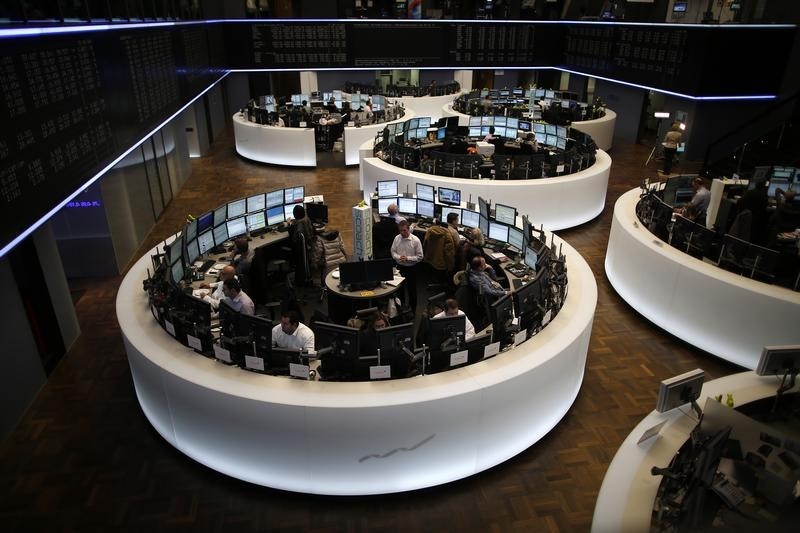Asia FX dithers as dollar steadies before Powell speech; yen muted after CPI data
* Asian shares inches hit five-month high
* Risk sentiment bolstered by EU Summit deal announcement
* Investors expect U.S. stimulus of more than $1 trillion
* Asian stock markets: https://tmsnrt.rs/2zpUAr4
By Hideyuki Sano and Sumeet Chatterjee
TOKYO/HONG KONG, July 21 (Reuters) - Asian shares hit a
five-month high and European equity market futures extended
gains on Tuesday after European Union leaders agreed on a
massive stimulus plan for their coronavirus-blighted economies.
Hopes that vaccines against the COVID-19 disease might be
ready by the end of year also supported riskier assets,
following promising early data from trials of three potential
vaccines. News of the EU deal saw the euro EUR= rise to a fresh
four-month high of $1.1470 before profit-taking pulled it lower.
The EU deal, which came after Summit chairman Charles Michel
presented compromises on a 750 billion euro recovery fund, is
critical to dispel doubts about the bloc's very future.
European markets were set to open higher with pan-region
EuroSTOXX 50 futures STXEc1 and FTSE futures FFIc1 rising
0.5% and German DAX futures FDXc1 trading 0.6% higher during
Asia trading hours.
E-Minis for the S&P 500 ESc1 were up 0.2%, a day after
tech shares pushed the Nasdaq Composite .IXIC up 2.5% to a
record closing high, and the S&P500 .SPX hit a five-month
peak.
MSCI's broadest index of Asia-Pacific shares outside Japan
.MIAPJ0000PUS gained 1.9% to its highest level since February.
"It's a pretty good message compared to other countries,"
Jefferies chief global equity strategist Sean Darby said,
referring to the outcome of the EU Summit. "The markets should
take this news very well."
The risk-on approach in the global markets in the last few
months has mainly been boosted by the record levels of stimulus
announced by the policymakers to cushion the economic impact of
the COVID-19 pandemic and ensuing lockdowns.
But some analysts are not convinced about the sustainability
of the rally, and the positive sentiment faces reality checks
later this month as corporate earnings season gets in full swing
in many countries.
Harry Richards, fund manager for fixed-income at Jupiter
Asset Management said in a note on Tuesday that the economy was
still "experiencing stresses that comfortably exceed" those
during the global financial crisis.
"Monetary and fiscal easing has acted as an anaesthetic,
numbing financial markets to the true gravity of the situation
at hand," he said. "But it is really the longer term impacts of
the crisis that...are underappreciated by the wider market."
With the announcement of the EU summit outcome, the investor
focus has now shifted to possible U.S. stimulus measures to help
the economy after $3 trillion in stimulus earlier this year.
"The U.S. will likely adopt stimulus by the first week of
August. We don't know its exact size but I bet it will be
something like $1 to $1.5 trillion," said Nobuhiko Kuramochi,
market strategist at Mizuho Securities.
Advisers to President Donald Trump and congressional
Democrats were set to discuss the next steps in responding to
the coronavirus crisis on Tuesday. Elsewhere in Asia equity markets, Japan's Nikkei .N225
rose 0.8%, while South Korea's benchmark KOSPI .KS11 advanced
1.3%. The Australian stock index .AXJO was up 2.2%, on track
to post its best day since June 16.
In China, the blue-chip CSI300 index .CSI300 was down 0.1%
in the afternoon trade, reversing a strong streak of gains in
the last few sessions.
In the currency market, the Chinese yuan was little changed,
trimming an early advance to a four-month top as simmering
tensions between Beijing and Washington undercut the boost from
extended inflows into the mainland stock market.
The onshore yuan CNY=CFXS was steady from the previous
close, fetching 6.9923 per dollar at midday. The offshore yuan
CNH=D3 was also flat at 6.9890 per dollar. The yen was little
moved at 107.34 to the dollar JPY= .
Gold held firm at $1,818 per ounce XAU= , having hit a
nine-year high of $1,820.4 on Monday.
Oil prices were little changed, trapped in the narrow
trading band of the past three weeks as investors gauged hopes
for a recovery in oil demand against fears of new lockdowns due
to a growing number of coronavirus cases. O/R
(Editing by Jacqueline Wong and Kim Coghill)
